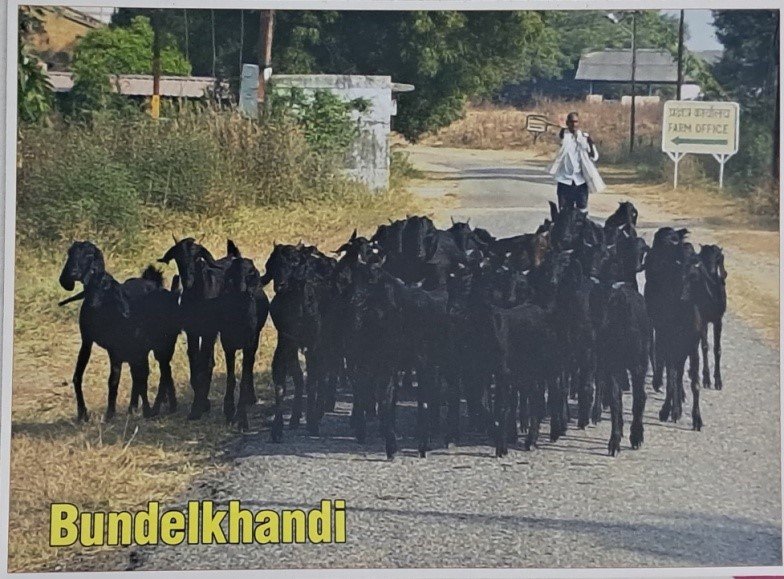ICAR-IGFRI developed Bundelkhandi Goat receives official Breed recognition
Experts believe that this recognition will pave the way for more focused research, ultimately leading to better breeding practices and improved productivity.
The Bundelkhandi goat, a vital yet previously unclassified breed from the Bundelkhand region of Central India, has been officially recognised as a new breed by ICAR – National Bureau of Animal Genetic Resources, Karnal. The formal recognition was announced during a ceremonial event organised at the National Agricultural Science Centre
For years, the Bundelkhandi goat has played a crucial role in the rural economy of the Bundelkhand region, renowned for its hardiness and adaptability to harsh climatic conditions. Despite its significance, the breed had remained unclassified until now. The official recognition marks a major milestone in its conservation and development, opening up new research opportunities and improving livelihoods for local goat farmers.
The successful registration is the result of the dedicated efforts of the breed conservation team at ICAR-Indian Grassland and Fodder Research Institute, under the leadership of Dr Pankaj Kaushal, Director, ICAR-IGFRI.
Experts believe that this recognition will pave the way for more focused research, ultimately leading to better breeding practices and improved productivity. The Bundelkhandi goat’s classification as an official breed is expected to help enhance the livelihoods of goat farmers in the region, who rely on these animals for meat production along with some milk.
The ICAR’s decision to grant the Bundelkhandi goat breed status underscores the growing importance of preserving indigenous livestock breeds and promoting sustainable agricultural practices in rural India.
Experts believe that this recognition will pave


